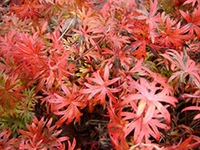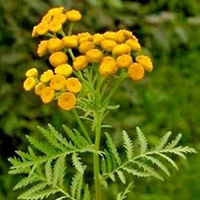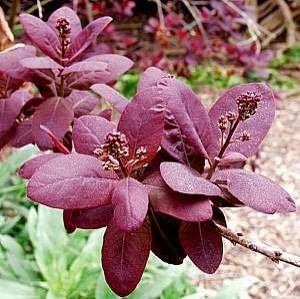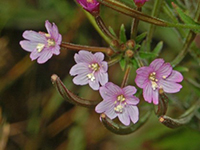PROJECT
Selective natural inhibitors of post-proline degrading peptidases from Bulgarian medicinal plants as potential agents for the prevention and therapy of oncological diseases

Geranium sanguineum
(bloody cranesbill)

Tanacetum vulgare
(tansy)

Cotinus coggygria
(smoke tree)

Epilobium parviflorum
(hoary willowherb)
RATIONALE: Post-proline specific peptidases (PPSP) are a group of enzymes with a key role in controlling the levels of bioactive peptides and proven involvement in the pathogenesis of tumor diseases. Representatives of this group are the serine proteases prolyl oligopeptidase (POP, EC 3.4.21.26) and fibroblast activation protein α (FAP, EC 3.4.21.B28). The development of selective inhibitors for these enzymes, which are potential therapeutic agents for the treatment of cancer, is essential for modern medicine. On the other hand, the design of such inhibitors is a great challenge due to the high degree of identity in the structure of the active centers and the same catalytic mechanism. To solve this problem, it is rational to use the huge variety of plant secondary metabolites that result from the adaptation of plants to environmental conditions. The good biodegradability of these compounds and their lower overall toxicity compared to synthetic preparations makes them particularly interesting for modern medicine and pharmacy.
Within the project extracts and fractions of 4 medicinal plants (listed on the title page of the project), distributed in Bulgaria, will be obtained and chemically characterized. The inhibitory potential and selectivity of these drugs on the activity of PPSP, overexpression of which is observed in various malignancies, will be investigated. These studies will be performed on recombinant enzymes and in homogenates of human cell lines (non-tumorigenic and cancerous). Inhibitory constants and type of inhibition will be determined. The in vitro antitumor potential of medicinal plant preparations on human tumor cell lines will be assessed by determining cell survival and compared with the effect on a control non-tumorigenic cell line (selectivity index). The pro-apoptotic potential of the plant fractions will also be determined. Based on the results obtained regarding the cytotoxic properties of the studied extracts and fractions, the substances showing the strongest in vitro antitumor effect will be selected. These substances will be tested in an experimental model of Ehrlich's tumor (breast cancer) in mice. Their organ and systemic toxicity and their antitumor properties in vivo will be determined. >.

